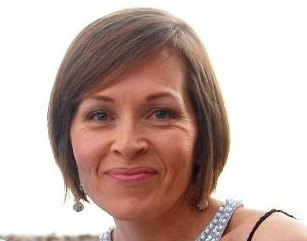
Meg Munoz became an escort at age 18, and had a relatively good experience working. She then took a break from the business for two years. Some time after her return to the work in order to pay for college, a close friend turned on her, blackmailing her and forcing her to turn over all her earnings to him for the next three years. Her experience led Munoz to found Abeni, an Orange County-based rescue industry organization. But Abeni’s participation in nuanceless anti-trafficking rhetoric bothered her, and after some re-examination, Munoz repurposed Abeni to be a safe space for both sex workers and trafficking survivors. Nowadays, Munoz uses her unique experience as both a voluntary worker and a survivor of exploitation to attempt to create understanding between the sex workers’ rights and anti-trafficking movements.
Prominent activists with history as trafficking victims, such as you and Jill Brenneman, have come out on the side of decriminalization of sex work. You turned Abeni, your organization, from a rescue industry vehicle to a safe haven that serves both trafficking survivors and sex workers—plus the people who fall in between those two identities—and promotes their agency. Ruth Jacobs, a woman with deeply negative sex work experience, also recently made an about face from being a sex work abolitionist to joining the sex workers’ rights movement. How do you interpret this phenomenon?
Jill’s story wrecked me in some of the worst and best ways. She’s one of those people that you want to make everyone sit down and listen to. Her story is a powerful reminder of just how complex this can be, but how necessary the more critical conversations are in regards to hearing different voices and current legislative trends. But most of all, my hope is that [her story and those like it] would allow people to humanize sex workers and survivors in ways that extend beyond the victim narrative. Ruth Jacobs does this very well. I [see] Jill and Ruth’s perspectives as that of women with deep, intimate, experiential knowledge (both negative and positive) of the industry. They seem to genuinely understand how approaching sex work and exploitation with risk reduction concepts and better policy can boost agency and save lives. I don’t think any of us want to further entrench ourselves in more policies and laws that isolate, stigmatize, and criminalize already marginalized people.
What made you personally change your mind about Abeni being an anti-trafficking organization, motivating you to make it into “a reality based social services organization for sex workers and trafficked people”?
From a practical standpoint, Abeni was founded on developing the kind of support I wish I’d had when I was in the industry. But, from a philosophical standpoint, we had a lot of maturing to do. Back in 2009, we were the only Orange County-based organization of its kind. I was coming out of, but still being influenced by the Christian culture I’d been a part of for the last 10+ years.
We’re starting to see a slow cultural shift, but what I was hearing in regards to those in the industry usually sounded like this:
- Girl (or usually a girl) experiences abuse, trauma, or loss.
- She’s addicted or broken, so she enters [the] industry and experiences more of the same.
- She meets Jesus, repents, gets rescued/leaves the industry, and then some modified version of ‘happily ever after’ follows.
The inherent danger in that is when the Christian community become consumers of these stories and insist on acknowledging and promoting only a singular type of industry experience. That’s dishonest and damaging. I just didn’t feel like that narrative reflected my story or the complexity of so many other stories I’d heard. There are hundreds of reasons people enter the industry and those were missing from the conversation. Also significant to me was the fact that it didn’t reflect my spiritual narrative, which has been a significant part of my journey.
In order for Abeni to evolve, I was going to have to evolve. I was processing trauma as well as my non-trauma experiences, so it took some time for me sort through that. I left escorting following years of intense abuse and exploitation, so that was fresh on my mind and it definitely influenced how we saw the industry. We were always supportive but ultimately had an agenda that was “exit-hopeful.” As long as we were serving “repentant” women who’d internalized their stigma, hated sex work, and felt shame about working in the industry, we served a purpose. We didn’t realize we were part of the rescue industry and, ultimately, part of the problem. We were the ones to call if you had a dire need for lip gloss or cookies. But after about a year, I began to instinctively understand that we lacked relevance and substance. I started to feel an incredible amount of conflict in regards to how we were growing and our direction. I could write a book on that alone.
Good intentions weren’t enough and I realized that if we continued down the road we were on, we could hurt or further stigmatize people. That is the thought that broke me. I knew we had to change or shut down, so we did the unthinkable: We literally stopped in our tracks and decided to undergo an organizational soul-searching. We took the next two years and continued to work with those who were already with us, but did little else but learn from and listen to the sex work community, and analyze intersecting issues like human rights, sex work, feminism, race, gender, socio-economics, labor exploitation, policy, etc.
We didn’t know of any other organization[s] that had undergone such radical shifts, so we had no idea how to navigate that. We understood how we’d been viewed by those in the industry as well as those in the anti-trafficking community, so we weren’t sure how we were going to explain our growth and change. We had real concerns about how we would be viewed and received. One of the people I really respect and listen to is Donia Christine because she was honest as fuck with me. When I met her at CCON West back on 2013, she was skeptical and didn’t hold back, letting me know exactly what she thought and what her concerns were. I value that moment so much because it showed me how much work we still had to do. And we don’t mind doing it because the sex worker community isn’t just this group of people we serve, it’s MY community. Sex work wasn’t just a pit-stop for me, it’s part of who I am and part of my identity. I love Abeni’s story because it’s my story, too.

How can the sex workers’ rights movement empower trafficking survivors to join us and become leaders in the struggle for decriminalization?
I keep coming back to logic, common ground and respect. There is so much shared experience between sex workers and survivors. Sometimes the circumstances are very different, but at some point, all of us either employed or were forced to employ our sexual labor for financial reward, whether it was ours or someone else’s. I think that’s a great place to for the conversations to start.
I think we best empower people by humanizing them, supporting them where they’re at, allowing them to tell their stories, and learning how to listen well. Great relationships and conversations are built on that.
Do you think there’s any common ground sex workers can find with anti-trafficking activists who aren’t trafficking survivors?
I think it can be more challenging when an activist doesn’t have any industry experience, but I know lots of people who never spent a day in the industry [who] get it.
On a more practical level, I’m finding that focusing on more concrete issues like socioeconomics and poverty, human rights, the failing justice and child welfare systems, gender equality, gender identity, race, and poor mental health services facilitates more of those conversations. Those are tangible issues that aren’t nearly as easily disputed as topics that have a value or shame-based focus, like End Demand.
In the sex workers’ rights movement and in the wider activist world, sometimes service work is derided as moving deck chairs on the Titanic. Some consider the “real activists” to be only those who lobby for policy change, or participate in direct action. How would you respond to people with this attitude?
I hadn’t heard that yet, but maybe I’m still naïve enough to actually think it’s the current political and social system that’s moving all the chairs around. We keep doing the same things, voting the same people into office, and pursuing the same questionable social solutions, but nothing real ever changes. I’m not gonna lie, it’s exhausting and sometimes discouraging, but when I look and see how successful grassroots and community-based social movements have been historically, I know we can still inspire change.
Social movements [can] generally [be] broken into four stages. It’s early and we’re still coalescing, so everyone is important and I hope we don’t ever lose sight of that. I can’t think of any movement [that’s] gotten to the lobbyist stage without doing the awareness, organizing, or protesting first. This is why Tara Burns’ work is so significant right now. We’re all moving forward based on the momentum that those who came before us created.
Being friends with you on Facebook, and reading Abeni’s Facebook entries, I’m always struck by how everything you write is so imbued with compassion. What role has compassion played in your work? How would you advise Tits and Sass readers to become more compassionate in their own community work?
When I hear something that kind, I always feel compelled to confess. Anyone who knows me knows that I’ve been known to lose my shit every once in a while. I don’t always feel compassionate, but I believe in [compassion] and am committed to it.
And let’s be honest, it’s easy to be nice to people who agree with you, not so much in a room full of haters. For me, compassion is most necessary when it comes to those who don’t understand (or don’t want to [understand]) sex work and/or trafficking. I sometimes feel stressed out when dealing with the anti-trafficking community, but I know we’re there for a reason and so we value that opportunity greatly. And we’re getting those chances, we’re seeing paradigms shift and lightbulbs go off! I’m grateful that we’re able to engage in conversations with them. It’s educating, bridge-building, and infusing perspective into a world that understands VERY little about the spectrum of sex work outside of moralization or the conflation of chosen or circumstantial sex work and trafficking.

What can a sex worker do to help if they suspect that another worker is being trafficked or coerced?
Over and over again, I see how other sex workers are the best support for those in exploitative or forced situations within the industry. One of the things I love about the sex work community is how networked and self-resourced they’ve had to become out of necessity.
There is definitely a need for safe, healthy, local service providers that we can trust and utilize, but that’s not always a safe option for sex workers. We believe that community is a key part of holistic health and would encourage people to find at least one person to start that they trust if they find themselves in a dangerous or forced situation. From there, the networking, asking around, [and] seeking out help become less overwhelming. If I don’t have a resource for something specific, I start making calls and hitting social media. Inevitably, someone will have a great suggestion for me.
What’s so telling about how flawed our approach is the fact that so many of the survivors and sex workers I know would rather deal with an abusive boyfriend, manager, or pimp than seek out help from law enforcement or anti-trafficking organizations (especially religious [ones]). Language that assumes sex work and trafficking are the same or anti-sex work sentiments just don’t make them feasible options.
When it comes to helping someone you think may be experiencing coercion or force, it’s really important to be a safe, reliable, trustworthy support. If they’re not ready to reach out, I highly recommend being the initial contact and connecting with a person or an organization you trust, [such as] SWOP, HIPS, St. James, Sex Worker Project, or Abeni. Find someone with resources (or access to them) who will talk with and support you and them without expectation or pressure. Once they’re able to plug into those resources, your presence and support remain so important. Making a decision to leave, or run, or file a report is often complex and very personal. Not everyone can do it right away, so respecting personal boundaries and empowering that person to relocate (not rescue[ing them]) is always a great response.
As the sex workers’ rights movement matures, we’re moving away from glib sex positivity and simplistic labor analysis to a more nuanced understanding of the work which includes the experiences of marginalized workers and workers with negative experiences. Your own experience with sex work spans the spectrum of voluntary, enthusiastic work to survival to abuse. How do we continue to tell more complex stories about our experiences?
I think we do just that: We continue to tell our stories. We keep creating forums for ourselves, speaking out, and making sure that we take the time to reflect on and share our own experiences.We no longer have the luxury of glossing over our own stories, so we have to consistently show why a black and white sex work and/or exploitation narrative is not realistic and hurts both sex workers and survivors alike.
With great success, the anti-trafficking community has had to boil down their talking points to a few ‘indicators’, but these often rely on stereotypes and can encourage confusion between sex work and trafficking. It functions and feeds on a “good verse evil” dichotomy that requires perfect victims and doesn’t allow for much conversation outside that. It’s messy because the morality card is the trump card, and that often glosses over any intersecting issues and injustices. We need to continue to expand and encourage deeper, more revealing and nuanced conversations.
What’s next for you as an activist?
Activists are badasses, but just because I used to dream all the time about getting arrested at protests, doesn’t mean I qualify as a badass. I probably consider myself more of an advocate.
And I’m THRILLED about this year because we’re expanding, but we REALLY need to hear from the Orange County sex worker community! We’re a very conservative county with a large Evangelical anti-trafficking movement, so I think that keeps people in the industry quieter here. We finally get to start working on developing more of the risk reduction and advocacy that our local sex workers/survivors need. It’s going to be a year full of research, learning, assessing, visiting other organizations, development, planning, then figuring out how we’re going to pay for it.
Being a sex worker of color or [an] LGBTQ [sex worker] in Orange County can also be a different experience, so a real priority for us is to bring more voices onto Abeni that reflect the diversity in the industry and our county.
Meg, thank you for this courageous interview. Please do write a book! Your perspective is sorely needed in the anti-trafficking movement. ❤️ -a fellow sex worker
Thank you so much for the important work you are doing, Meg, bridging the divide. And thank you so much for the compassion you bring to this work– it shines through in the interview.
–Lola
Ladyface and loladivina, thank you SO much 🙂
Meg is what true activism and compassion is about. Her work and her life experience allow her to help in ways that those on the outside can’t. Thank you for all you do Meg and thank you titsandsass.com for letting the world see what an amazing woman Meg is! I am honored to know you… kristen
I realize that this article is almost a decade old now in 2024, but I’m curious to know if Abeni still exists. The website looks like it went down after 2017 and I can’t find any current info about it. Any articles I see on Abeni and Meg are from 2014-2015.